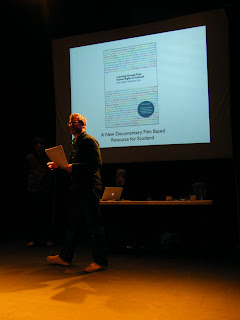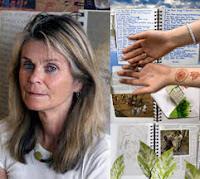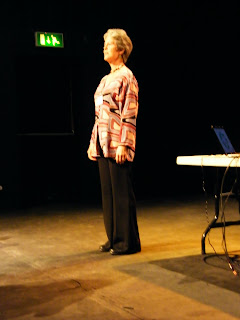http://youtu.be/X4u3oqU_Ojo
Video has been uploaded to youtube but isn't showing on searches yet or embedding, but here's the link.
http://www.youtube.com/embed/X4u3oqU_Ojo

Friday, 16 September 2011
Thursday, 15 September 2011
Wednesday, 14 September 2011
Learning through Film: Human Rights in Scotland
This presentation and discussion by Nick Higgins was an insight into the power film has to communicate ideas and to educate. By using Douglas Gordon's The Right Not to be Tortured as an example, the discussion demonstrated the deep and complex ideas that cinematic techniques can portray.
http://www.learningthroughfilm.co.uk/Learning_Through_Film/Organisations.html
http://www.learningthroughfilm.co.uk/Learning_Through_Film/Organisations.html
Conference Exhibition - Mapping Street Art in Athens
Painting Human Rights: Mapping Street Art in Athens by Myrto Tsilimpounidi & Aylwyn Walsh.
This presentation was really more of a discussion about the street art featured in the photographs. This lead to a wide converstion about the use of street art and the elements that draw people to it.
Also a short video interview with Myrto & Awlwyn will be uploaded soon.
http://www.ministryofuntoldstories.gr/index.php?option=com_content&view=article&id=63%3Apainting-human-rights-mapping-street-art-in-athens&catid=42%3Aresearch&Itemid=55&lang=en
This presentation was really more of a discussion about the street art featured in the photographs. This lead to a wide converstion about the use of street art and the elements that draw people to it.
Also a short video interview with Myrto & Awlwyn will be uploaded soon.
http://www.ministryofuntoldstories.gr/index.php?option=com_content&view=article&id=63%3Apainting-human-rights-mapping-street-art-in-athens&catid=42%3Aresearch&Itemid=55&lang=en
 |
Friday, 9 September 2011
Carole Roy - Documentary Film Festivals

Captivating talk from Carole Roy about the positive effects that film festivals can have, especially in smaller communities. It brought to light how hosting such events can give an alternative message to that which is delivered by mainstream media. What was really interesting however, is the effects that those messages have on the community, once they have been delivered.
A short interview with Carole will soon be uploaded.
A short interview with Carole will soon be uploaded.
Thursday, 8 September 2011
BUZZ | We are united in justice : Maintained uncertainty : Space : Permanence of fragmentation : Escape Space Time : People Landscape Landscape Art : Transformation : Re-imagining : Present is not permanent : Odd man out : On the run : Planet of the winds : Destruction : Dead Sea : Jericho : Light-headed : Arab Spring : Borders are in the mind : The People Want… | BREATHTAKING
LOG >>IN
We hope you have met, talked to or recognised
all of us on our first day - but what a full-on day!
We will be feeding in to this Blog and the Mini Daily Journal which the incomparable Jules Cadie will be producing... so look out for our slant on each days proceedings with interviews, pics, video, artwork, poems and your chance to leave something made in clay for the NEA garden!
More to follow...
Sandra Brown, Liz Coppock, Sharon Tweedle, Justyna Wills, Bob Winton and facilitator Bobby Grierson : )
Day 1 - Brilliant!
The first day kicked off really well. It was a little frantic at times but that added to the buzzing atmosphere. After the first presentation from Raja Shehadah, I think the most used word was ‘wow.’ It was a great start to the day and set the tone for the rest of it.
WELCOME - from Stephanie
WELCOME-
a very big, warm welcome to the
Knowing Ways: Critical Learning in Arts Practice International Conference.
It is terrific to have everyone here, whether in person or, in a couple of instances, via skype. Some of you have travelled many thousands of miles to be here, to share and learn together. Thank you everyone who has made such a fantastic effort to come to Edinburgh. We have a very busy and packed few days and I hope you feel excited, awakened, nourished, challenged, and more than anything really valued in your participation.
The conference has evolved from two previous conferences that the panel has organised,
which were based on the intention to create a supportive and investigative framework for
our dialogues concerned with our research and practice. This intention continues, as we
identify four strands of inquiry within this framework, which although distinct within
their approaches and contexts, also interweave within their political principles and
purposes:
At this time in our social, economic and political history, we witness how those who have
held media, banking and governance power are being challenged in their authenticity,
honesty and validity. We are experiencing rapid change as cultural and intellectual
resources are being turned into commodities and at the same time, movements are
emerging which challenge these trends. These processes can raise doubt, fear and at times
despair, but also opportunities for us to create new relationships with the media, demand
true representation from those we elect to govern and represent us, and urgently demand
accountability from our economic institutions. It also demands that we interrogate our
relationship with each other [all seven billion of us] and the planet and her natural
resources.
Arts practitioners have crucial roles in this as they create frameworks for us to re-imagine
our ways of being human and our relationship with the planet Earth. We know if we can
imagine it, we can do it. One day, we may no longer need there to be an organisation
called Amnesty International, one day women may no longer walk five miles every day
to collect water for their children, or feel threatened by the man she has put her trust in,
one day every human being will have the freedom to develop their potential, one day
greed will stop and those without resources will stop having to be no more than
commodities to survive.
Will this happen in this 21st Century? Do we have the will or is it too late? As we meet at
this conference, so many people in our human family are believing there is hope to create
a new way, many are also dying and enduring cruelty and torture to create new ways for
the future generations.
Knowing Ways: Critical Learning in Arts Practice is an opportunity for us to investigate,
create critical dialogues and reflect critically on how we are doing as practitioners and
researchers. How are we generating and contributing to professional knowledge to these
demanding, challenging and crucial areas of work, which oscillate at times between being
dangerous and at other times sheer exhilaration? How do we generate and develop
knowledge of self and our practice to ensure that we do not harm others and ourselves?
How do we find the courage to confront ourselves, so that the re-imagining is practical,
progressive, intelligent and thoughtful?
Why do we do what we do and how do we make it better? This is one of the key
questions I invite you to use as a starting point for your reflections during each session of
our conference.
Thank you for your generosity, your humanity and the inspiring work you do as artists,
activists and academics. Thank you for being you.
Stephanie Knight
Conference Director
Edinburgh, September 2011
a very big, warm welcome to the
Knowing Ways: Critical Learning in Arts Practice International Conference.
It is terrific to have everyone here, whether in person or, in a couple of instances, via skype. Some of you have travelled many thousands of miles to be here, to share and learn together. Thank you everyone who has made such a fantastic effort to come to Edinburgh. We have a very busy and packed few days and I hope you feel excited, awakened, nourished, challenged, and more than anything really valued in your participation.
The conference has evolved from two previous conferences that the panel has organised,
which were based on the intention to create a supportive and investigative framework for
our dialogues concerned with our research and practice. This intention continues, as we
identify four strands of inquiry within this framework, which although distinct within
their approaches and contexts, also interweave within their political principles and
purposes:
- Arts & Human Rights
- Arts & Health
- Artists & Critical Learning
- Developing international practice – no mean model
At this time in our social, economic and political history, we witness how those who have
held media, banking and governance power are being challenged in their authenticity,
honesty and validity. We are experiencing rapid change as cultural and intellectual
resources are being turned into commodities and at the same time, movements are
emerging which challenge these trends. These processes can raise doubt, fear and at times
despair, but also opportunities for us to create new relationships with the media, demand
true representation from those we elect to govern and represent us, and urgently demand
accountability from our economic institutions. It also demands that we interrogate our
relationship with each other [all seven billion of us] and the planet and her natural
resources.
Arts practitioners have crucial roles in this as they create frameworks for us to re-imagine
our ways of being human and our relationship with the planet Earth. We know if we can
imagine it, we can do it. One day, we may no longer need there to be an organisation
called Amnesty International, one day women may no longer walk five miles every day
to collect water for their children, or feel threatened by the man she has put her trust in,
one day every human being will have the freedom to develop their potential, one day
greed will stop and those without resources will stop having to be no more than
commodities to survive.
Will this happen in this 21st Century? Do we have the will or is it too late? As we meet at
this conference, so many people in our human family are believing there is hope to create
a new way, many are also dying and enduring cruelty and torture to create new ways for
the future generations.
Knowing Ways: Critical Learning in Arts Practice is an opportunity for us to investigate,
create critical dialogues and reflect critically on how we are doing as practitioners and
researchers. How are we generating and contributing to professional knowledge to these
demanding, challenging and crucial areas of work, which oscillate at times between being
dangerous and at other times sheer exhilaration? How do we generate and develop
knowledge of self and our practice to ensure that we do not harm others and ourselves?
How do we find the courage to confront ourselves, so that the re-imagining is practical,
progressive, intelligent and thoughtful?
Why do we do what we do and how do we make it better? This is one of the key
questions I invite you to use as a starting point for your reflections during each session of
our conference.
Thank you for your generosity, your humanity and the inspiring work you do as artists,
activists and academics. Thank you for being you.
Stephanie Knight
Conference Director
Edinburgh, September 2011
Subscribe to:
Comments (Atom)


































